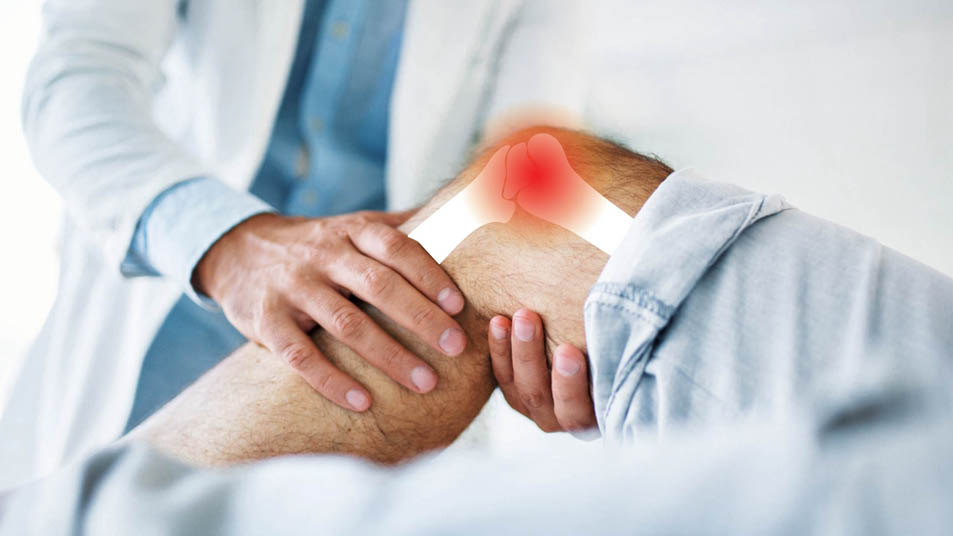
What is Arthritis?
Arthritis is caused due to joint deterioration. As age increases some joints naturally deteriorate and many suffer from Arthritis. Certain forms of arthritis develop following joint-damaging trauma. Arthritis is also a result of some medical problems.
Arthritis can afflict any joint and most frequently occurs in people's Hands and wrists, Knees, Hips, Feet and ankles, Shoulders, Lower back (lumbar spine).
Types of Arthritis :
Depending on which type of arthritis you have, it can break down the natural tissue in your joint (degeneration) or cause inflammation (swelling). Certain conditions induce inflammation, which then
results in degeneration.
Rheumatoid Arthritis and Osteoarthritis are the two most prevalent forms of Arthritis. Among the most prevalent kinds are:
Osteoarthritis : Wear and tear arthritis. This is the most common form of arthritis, often associated with aging. It happens as the cartilage that cushions the ends of the bones ages and becomes less effective. Joint discomfort, stiffness, and a reduction in range of motion are among the symptoms. OA commonly affects the knees, hips, hands, and spine.
Rheumatoid arthritis : Arthritis results from your immune system inadvertently causing harm to your joints. The immune system of the body targets its own tissues, especially the joints, in this autoimmune disease. It causes inflammation in the joint lining, leading to pain, swelling, and eventually joint deformity. RA often affects the small joints in the hands and feet and can also affect other organs.
Gout : Caused by the buildup of urate crystals in the joint, leading to sudden, severe pain and swelling.
Ankylosing spondylitis : Primarily affects the spine, causing inflammation that can lead to chronic pain and stiffness.
Psoriatic arthritis : Occurs in some people with psoriasis, a skin condition.
Juvenile arthritis: Younger than 16-year-olds with arthritis. Affects children and includes several types, such as juvenile idiopathic arthritis.
Symptoms and Causes of Arthritis :
Symptoms of Arthritis
Symptoms of Arthritis include ache in the joints, restricted range of motion, or stiffness in a joint's range of motion edema (an inflammation), skin discoloration sensitivity to touch or tenderness around a joint, a feeling of heat or warmth near your joints.
Symptoms of Osteoarthritis (OA) : Pain during or after movement, Joint stiffness after periods of inactivity or upon waking up, Loss of flexibility, Grating sensation, Bone spurs.
Symptoms of Rheumatoid Arthritis (RA) : Tender, warm, swollen joints, Joint stiffness, especially in the mornings and after inactivity, Fatigue, fever, and loss of appetite.
Symptoms of Psoriatic Arthritis (PsA) : Swollen fingers and toes, Foot pain, especially in the soles and back of the heel, Lower back pain, Changes in nails, such as pitting or separation from the nail bed.
Symptoms of Gout : Intense joint pain, often in the big toe, Lingering discomfort, Inflammation and redness, Limited range of motion.
Symptoms of Lupus : Joint pain and swelling, Butterfly-shaped rash across cheeks and nose, Skin lesions that appear or worsen with sun exposure, Fatigue, fever, and hair loss.
Causes of Arthritis :
General Causes of Arthritis include … Genetic predisposition, Immune system dysfunction, Infections, Injury, Metabolic abnormalities.
Main causes of Arthritis varies depending on which type you have:
Osteoarthritis happens naturally as you age, a lifetime of using your joints can eventually wear down their cartilage cushioning. Previous joint injuries, Obesity, which increases stress on joints, Genetics.
You may develop Gout if your blood contains an excessive amount of uric acid
(hyperuricemia).
Other causes include excessive uric acid in the blood forming crystals in joints. Diet high in purines (red meat, seafood, alcohol), Genetics, Obesity.
Your immune system can cause arthritis (including rheumatoid arthritis) when it damages your joints by mistake, attacks the synovium (lining of the membranes that surround the joints), Genetic factors, Environmental factors such as smoking.
Psoriatic Arthritis (PsA) which happens due to Autoimmune disorder often associated with psoriasis, Genetic predisposition, Environmental triggers.
Lupus may cause due to Autoimmune disorder where the immune system attacks various body tissues, Genetic factors, Environmental triggers such as sunlight, infections, and
medications.
Diagnosis of Arthritis :
Diagnosing arthritis typically involves a combination of methods to determine the type and extent of the condition, Information about any family history of Arthritis or other autoimmune diseases, about lifestyle and previous injuries, if any. They may advise to do Physical Examination like Joint Examination which check for swelling, redness, warmth, and range of motion in the affected joints and Functional Assessment for assessing the ability to perform daily activities and checking for any deformities.
They may also suggest for Laboratory and Imaging Tests which includes…
Blood Tests : These can help identify specific markers of inflammation (e.g., C-reactive protein, erythrocyte sedimentation rate), autoantibodies (e.g., rheumatoid factor, anti-CCP for rheumatoid arthritis), and other specific markers for different types of arthritis (e.g., uric acid levels for gout).
Joint Fluid Analysis : Extracting and analyzing synovial fluid from the joint to check for crystals, infection, or other abnormalities.
X-rays : To check for joint damage, bone spurs, and other changes in joint structure.
MRI (Magnetic Resonance Imaging) : Provides detailed images of soft tissues, including cartilage, tendons, and ligaments.
Ultrasound : Can help visualize inflammation and guide joint injections or fluid extractions.
Arthritis treatment :
Although there isn't a cure for Arthritis, the Doctor can help to identify therapies to help manage your symptoms. Which treatments you’ll need depend on what’s causing the arthritis, which type you have and which joints it affects.
The most common arthritis treatments include :
Anti-inflammatory medicine like NSAIDs or acetaminophen.
Corticosteroids are anti-inflammatory prescription drugs that include cortisone injections.
If you have psoriatic or rheumatoid arthritis, you should take disease-modifying antirheumatic medications (DMARDs).
Occupational therapy or physical therapy can help you increase your mobility, strength, and self-assurance.
Surgery (usually only if nonsurgical treatments don't relieve your symptoms).
Alternative Therapies for Arthritis :
Acupuncture : Inserting thin needles into specific points on the body to relieve pain.
Supplements : Glucosamine and chondroitin sulfate, although their effectiveness is debated.
Surgical and Other Procedures :
Joint Repair : Arthroscopy to smooth or repair joint surfaces.
Joint Replacement : Replacing damaged joints with artificial ones, common in hips and knees.
Joint Fusion : Fusing bones in a joint to increase stability and reduce pain, typically in smaller joints like those in the wrist or ankle.
